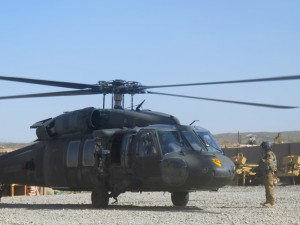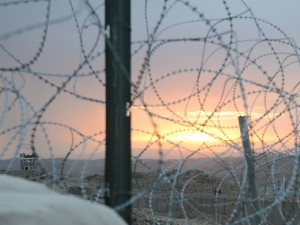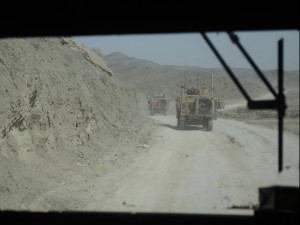A week after our return to Germany I’m still pretty knackered. Our embed with the Apaches in the dusty country called Afghanistan just lingers there, hasn’t completely sunk in yet. It was a physical and mental challenge, bigger than I had anticipated.
For now, I have found refuge in the microcosm of the work office, where things are orderly and clean and predictable. This is the settling back into “normal” life, the Western world wants the Afghans so desperately to share with us.
I like being back in Germany where people stand for five minutes at the red lights at the pedestrian crossing even though there are no cars to be seen for miles. On the other hand, I hear, the army sends their soldiers to some Mediterranean resorts to decompress for a week. I could have lived through that, no question!
Dust
I still have a cough that comes and goes, which I refer to as my Afghan dust lung. The fine dust is certainly a big challenge, especially for your respiratory system – and all technical equipment. The headquarters team looking after the computer work stations in Sar Howza had their little air spray cans they used to clean the keyboards and fans with.
I spent most of the three weeks with sinusitis and couldn’t sleep for a few nights because of a extremely bad cough. I knew I should have gone to the medic earlier, when one of the private contractors, an electrician living in the next compartment, came knocking with some cough tablets. He probably got woken up by me coughing my loungs out.
Conditioning
I think it’s also down to the challenge of the body having to constantly adapt to the air conditioning. All tents, barracks and vehicles are cooled down – which certainly makes it easier to bear the heat in general, but is very hard on the body as it has to switch from hot to cold all the time.
From what I was told, many soldiers get ill after they arrive in theatre because of those conditions. What certainly didn’t help things was the burning pit right by the perimeter that on a regular basis emitted toxic fumes that clouded the camp.
Altitude
One thing I hadn’t anticipated at all were the effects of altitude, which turn a stroll up the hill into a marathon up the K2 like experience. The area of Sar Howza doesn’t really look like a challenge because it’s more hills than high peaks but the whole plateau is very high up. The air is thin.
It’s utopian to think you could get used to the conditions in less than three weeks. It probably takes more than half a year until your blood produces the needed amount of white blood cells. Next time, if there is one, I would certainly make sure my level of physical fitness is much higher.
Danger

Kicking up dust big time. A Blackhawk helicopter has landed in the COP delivering the brigadecommander Colonel Edward T. Bohnemann
The second major challenge is keeping an even keel mentally. Although I felt pretty safe in the combat outpost behind hescos and riding in the MRAPs behind mine resitant steel, there still was a nagging feeling of danger that I couldn’t escape. There could be a mortar or rocket attack, you could run into an ambush or you could get blown up by an IED.
Thankfully, during the time we visited we had no major incidents. One of the MRAPs of first platoon in the other COP Mata Khan ran onto an IED but nobody was hurt. Only after we had left, two soldiers of the same platoon got hurt in such an incident and were flown back to Germany.
We were very happy we didn’t get into a fire fight – although that’s what many journalists actually want. But the subtle pressure of some uncalculated threat was constantly with us. Along these lines, I think the non imminent threat can be more nerve racking than a threat right before you. It wears you down.
Nowhere to run
And there was nowhere to run, you couldn’t just move around on your own outside the wire. Your and your fear were fenced in together. Somebody in the know explained to me the other day that a perceived threat causes high adrenalin levels, which could be brought down by movement and physical activity, but on an embed in a COP you can’t just go for a long walk to clear your system.
This is probably the reason why the gym in Sar Howza was in the evenings constantly packed with soldiers working out to the sound of Rammstein (all US soldiers no matter where they’re from or what they listen to otherwise seem to have a few Rammstein tunes on their iPod: Next time I will do a survey of the favourite Rammstein titles).
The three weeks as an embedded reporter with the US Army were an unforgettable adventure, even without a major incidents. But it was much more of an exhausting challenge than I though it would be.


